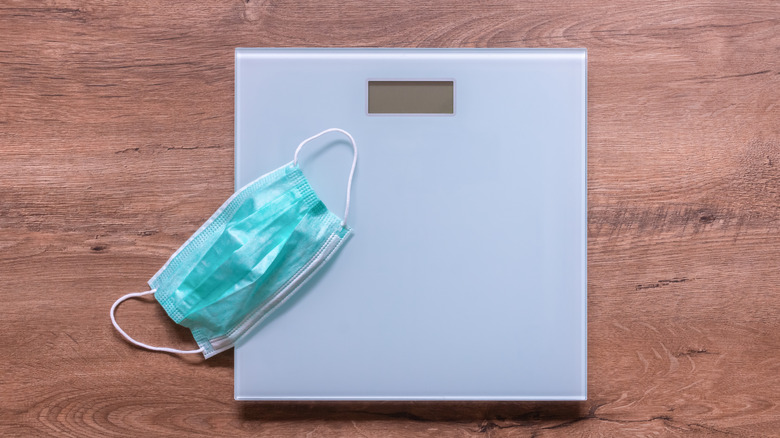Can Air Pollution Lead To Weight Gain?
You might only think of air pollution when you see it spilling from smokestacks and exhaust pipes, but there are other pollutants in the air that we can't see. Some examples of invisible pollutants include ozone, carbon, volatile organic compounds, polycyclic aromatic hydrocarbons, particulate matter, and nitrogen and sulfur oxides, according to the National Institute of Environmental Health Services.
Just because you can't see pollutants doesn't mean they aren't harmful. In fact, the U.S. Environmental Protection Agency reports that people can experience a variety of health conditions related to the amount of air pollution they are exposed to. Harvard Health Publishing documents several studies which show that extended exposure to pollutants was linked to diabetes, heart disease, stroke, and worsening symptoms of chronic obstructive pulmonary disease (COPD). While anyone is susceptible to the negative effects of air pollution, people who are young, elderly, pregnant, or who have an underlying heart or lung condition are the most vulnerable. And as it turns out, pollutants may affect our health in even more ways.
Air pollution can affect the gut microbiome
Weight gain is another condition linked to air pollution. A 2020 report published in the journal Environmental International showed how exposure to air pollution negatively affects the human gut microbiome. The study found that pollutants could increase the risk for obesity and type 2 diabetes. This research revealed that the tiny particles that enter our digestive tract can impact the growth of good and bad microbes. Additionally, a 2021 study following 3,902,440 veterans from 2010 to 2018 showed that air pollution — particularly fine particulate matter — was linked to weight gain and obesity.
There are a few things you can do to protect yourself against air pollution. One way is to check local air quality warnings on websites like AirNow. When levels of pollution are high, avoid going outside when you can. If you have to be outside when air quality is poor, you can also wear a high-filtration mask, such as a KN95 or a P99. You can also clean the air in your home with an air purifier that uses a High-Efficiency Particulate Air (HEPA) filter to remove pollen, dirt, and other particles from the air (via Smithsonian Magazine).


